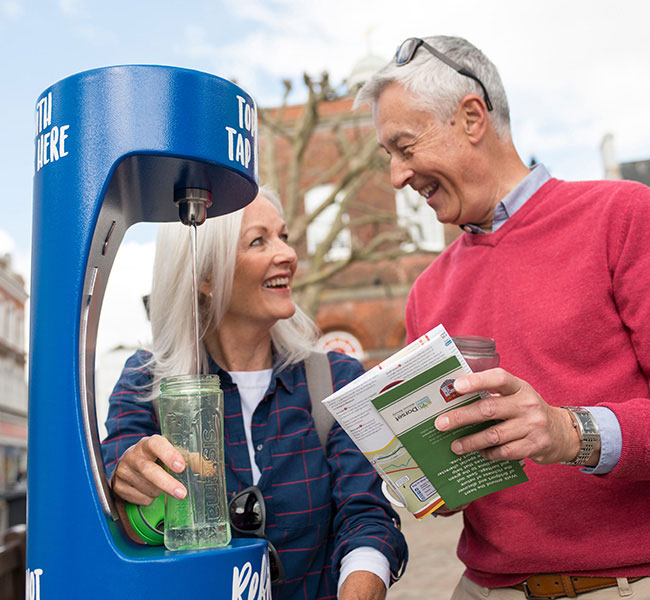- Home
- Our purpose
- Carbon and climate
- Our plastics promise
What impact does plastic have on the environment?
There is growing worldwide concern about the impact plastic has on the environment. The production process is carbon intensive as most plastic is made using fossils fuels which contribute to climate change when burnt. Plastic items also often end up in landfill and make their way into rivers and the sea where they cause harm to wildlife.
Reducing our plastic usage
We have taken steps to reduce the use of plastic at our offices and sites across the region.
We no longer use a range of disposable and single-use items, such as bottles and cups. We have also replaced protective plastic packaging with shredded recycled cardboard.
To estimate how much plastic the business uses, we work with waste contractors to inspect our waste skips. This information helps us to set ambitious waste reduction targets and improve at reusing and recycling plastic items.
Installing water refill points
The average person in the UK uses around 150 plastic bottles every year, which creates a lot of unnecessary plastic waste.
We’re working to reduce this number by installing water refill points in towns and cities in our region.
Refill points can now be found in Somerset, Dorset, Wiltshire and Bath, where people can top up with tap water for free.
See our refill point map to find out where they are located.

Keeping plastic out of the natural environment
Microplastics (particles smaller than 5mm) and macroplastic (particles larger than 5mm) find their way into our water recycling centres, mainly from consumer goods such as wet wipes.
To reduce the amount of plastic arriving at our recycling centres, we run awareness campaigns about the impact of flushing inappropriate items down the toilet.
Help us to prevent plastic from entering our watercourses, while also avoiding blockages in your home by only flushing the three Ps: paper, poo and pee.
Our Plastics Position Statement
We are working hard
Our Plastics Position Statement outlines what we are doing to reduce our own contribution to this problem as well as supporting initiatives to help customers reduce their reliance on single-use plastic.
